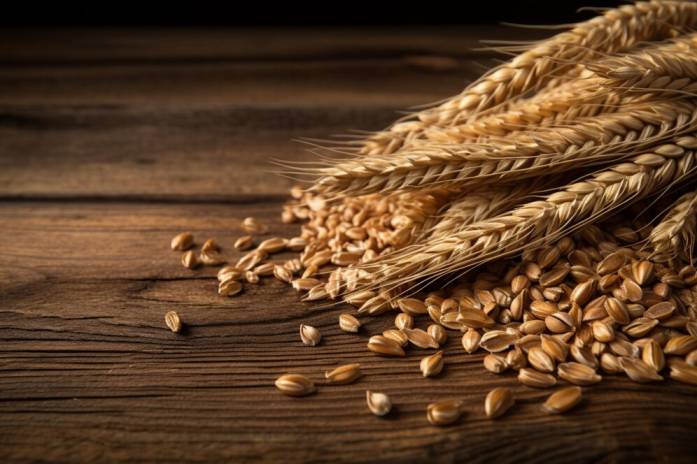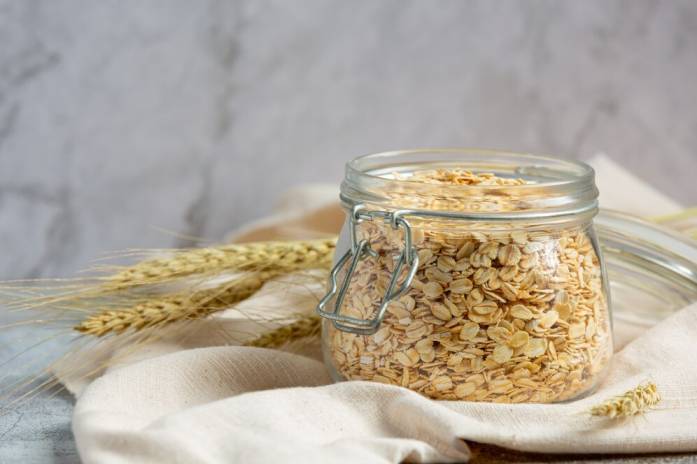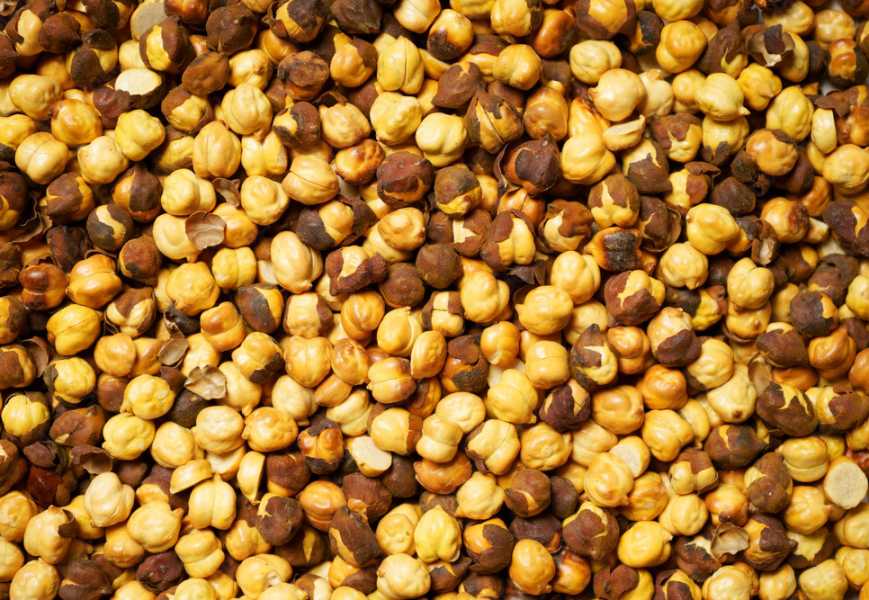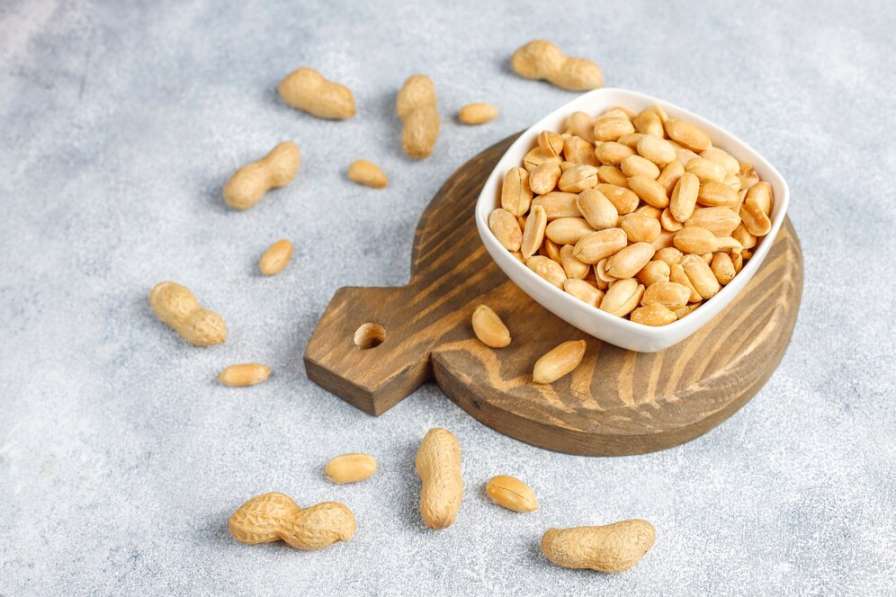Benefits of barley
Benefits of barley: Barley is the world’s fourth-largest grain crop, behind wheat, rice, and corn, and it may be harvested in a variety of settings. Its scientific name is Hordeum vulgare. Barley has various distinguishing characteristics among crop plants and is an important crop in modern agriculture. It is a crop that is grown for both human use and animal feed.

Barley also serves as an important experimental model plant, allowing for discoveries in plant genetics, physiology, pathology, biochemistry, and, more recently, biotechnology. In addition, it is a versatile grain, allowing you to make bread, soups, stews, health products, etc. It is also a source of barley, which is used in the production of alcoholic beverages. In ancient times, people used barley as currency.
Nutritional Benefits of Barley
According to the USDA, a serving of 100 grammes of barley contains:
- Energy: 352 kcal
- Protein: 9.91 g
- Fat: 1.16 g
- Carbohydrates: 77.7 g
- Fibre: 15.6 g
- Calcium: 29 mg
- Iron: 2.5 mg
- Magnesium: 79 mg
- Phosphorous: 221 mg
- Potassium: 280 mg
- Niacin: 4.6 mg
- Vitamin B6: 0. 26 mg
- Vitamin A: 22 IU
The Health Benefits of Barley

1. Deals with Hunger and Supports Losing weight
- Barley is packed with fibre, helping you feel full for longer and reducing your appetite. Additionally, it helps control calorie intake, which can contribute to weight loss.
- Barley contains a type of soluble fibre called beta-glucan, which has the ability to form a gel-like substance in the digestive system. This promotes fullness and enhances nutrient absorption by slowing down digestion.
- Barley is a great choice for those looking to manage their weight, as it is low in calories and contains a beneficial amino acid profile.
2. It helps with constipation
- Barley’s high fibre content is also beneficial for preventing constipation. Fibre contributes to the overall density of your food and helps with smooth digestion.
- Furthermore, it facilitates the smooth passage of the stool. Consequently, it enhances the overall digestive process. Additionally, it boosts metabolism and creates a sense of lightness. In addition, fibre helps reduce stomach bloating and promote intestinal health.
- The effects of soluble fibre, which include the production of short-chain fatty acids, are known to be beneficial. Fatty acids like these are extremely important for reducing inflammation and providing nourishment to the cells in the gut.
Also read: Puffed millet benefits
3. It helps in the prevention of gallstones
- Barley has been shown to lower triglyceride levels, a type of fat present in the bloodstream. Furthermore, barley is rich in insoluble fibre, which helps to decrease the secretion of bile acids and the formation of gallstones.
- Studies indicate that incorporating concentrated barley fibre sources into your diet can help reduce the risk of developing gallstones.
- The gallstones are solid particles that form in the gallbladder and contribute to the production of bile acid. Fibre also helps to prevent the absorption of bad fat in the body.
4. Reduces Cholesterol Levels
- Barley is rich in beta-glucan, a compound that effectively reduces LDL (bad) cholesterol levels by binding to bile acids. Barley has the ability to boost HDL (good cholesterol) and reduce triglyceride levels.
- Furthermore, research has shown that barley can effectively help prevent hypercholesterolemia. Healthy gut bacteria produce short-chain fatty acids by feeding on soluble fibre, which helps lower cholesterol levels.
5. Decreases the Chance of Heart diseases
- Barley is rich in flavonoids, which have been shown to provide protection against heart disease and cancer. Barley is known for its rich content of flavonoids. Additionally, it helps reduce risk factors such as LDL cholesterol and high blood pressure.
- Reducing these factors can lower the risk of heart disease. Furthermore, barley contains phytochemicals, which possess antioxidant properties that can help lower the risk of stroke.
- Research has shown that incorporating whole grains such as barley and oats into your diet can help lower the risk of cardiovascular disease.
6. It helps prevent diabetes
- Barley contains a significant amount of magnesium, which plays a crucial role in insulin production and the body’s utilisation of sugar.
- Research suggests that magnesium may help regulate blood sugar levels and prevent sudden spikes. Consuming barley has been found to lower the risk of prediabetes and type 2 diabetes.
Also read: Puffed rice benefits
7. May help reduce the risk of colon cancer
- Studies have demonstrated that the consumption of barley can effectively reduce the risk of colon cancer. Barley’s high fibre content is crucial for its cancer-preventing properties.
- Barley contains insoluble fibres that help clear the gut more efficiently, providing protection against colon cancer.
- Furthermore, soluble fibre has the ability to bind harmful carcinogens in the gut. Various compounds, such as antioxidants, phytic acid, phenolic acid, and saponins, have been found to provide protection against cancer.
8. Enhances Bone and Teeth Health

- The presence of phosphorous, calcium, copper, magnesium, and zinc in barley contributes to enhanced bone and tooth health. Zinc is essential for the mineralization and development of bones.
- Calcium, copper, magnesium, and phosphorous are crucial for maintaining a strong skeletal system. The presence of vitamin C in barley contributes to the proper growth and strength of bones.
9. Benefits for the Skin and Hair
- Barley is rich in vitamins, antioxidants, and minerals. Additionally, it helps to decrease oxidative stress and support the health of the skin.
- Zinc has a beneficial impact on the skin, helping in its healing process. Barley is rich in selenium, which helps maintain skin elasticity. It effectively tightens the skin and helps reduce toxins in the body.
- The presence of antioxidants in barley contributes to a more youthful appearance of the skin.
- Furthermore, barley is rich in essential vitamins, minerals, and antioxidants that promote strong and vibrant hair. It also includes copper and iron, known for their ability to minimise hair loss.
10. Anti-inflammatory Properties and anti-arthritic activities
- Additionally, barley grains have the ability to reduce inflammation and help in the repair of the lining of the digestive tract.
- It is used in the treatment of a variety of illnesses, including pancreatitis and ulcerative colitis, as well as gastrointestinal problems, and it also plays a role in the progression of recovery following a number of different illnesses.
- Due to its anti-inflammatory properties, people consume barley as a supplement for the treatment of gynecologic and urologic conditions, including infections of the urethra and prostate.
- In cases of fever or at the beginning of an inflammatory condition, barley can be used to boost the immune system and enzymatic activity of the body, which may result in a reduction of the illness.
Conclusion
There have been a number of studies and research projects carried out on barley and food commodities and products that are based on barley consumption. The physicochemical characteristics of barley, as well as the wide range of phytochemicals that are present, can have an impact on a person’s health. Phenolic acids, flavonoids, lignans, phytosterols, and folate are all examples of phytochemicals that have the potential to protect against cancer, cardiovascular disease, obesity, and cholesterol.
β-Glucan, which is a soluble fibre that can be easily extracted from barley grains, has recently received a lot of attention due to the versatile functional and bioactive properties it possesses. There is a need for increased promotion of these foods due to their high β-glucan content, which helps in the management of blood sugar levels, cholesterol levels, and abdominal fat and also reduces the risk of developing colon cancer.


